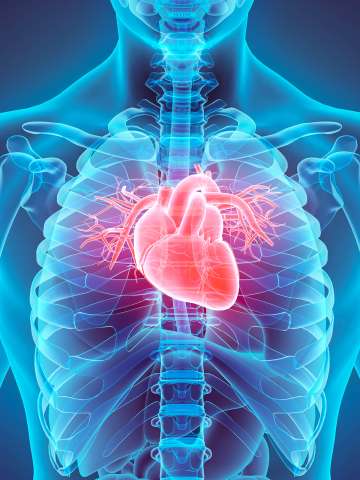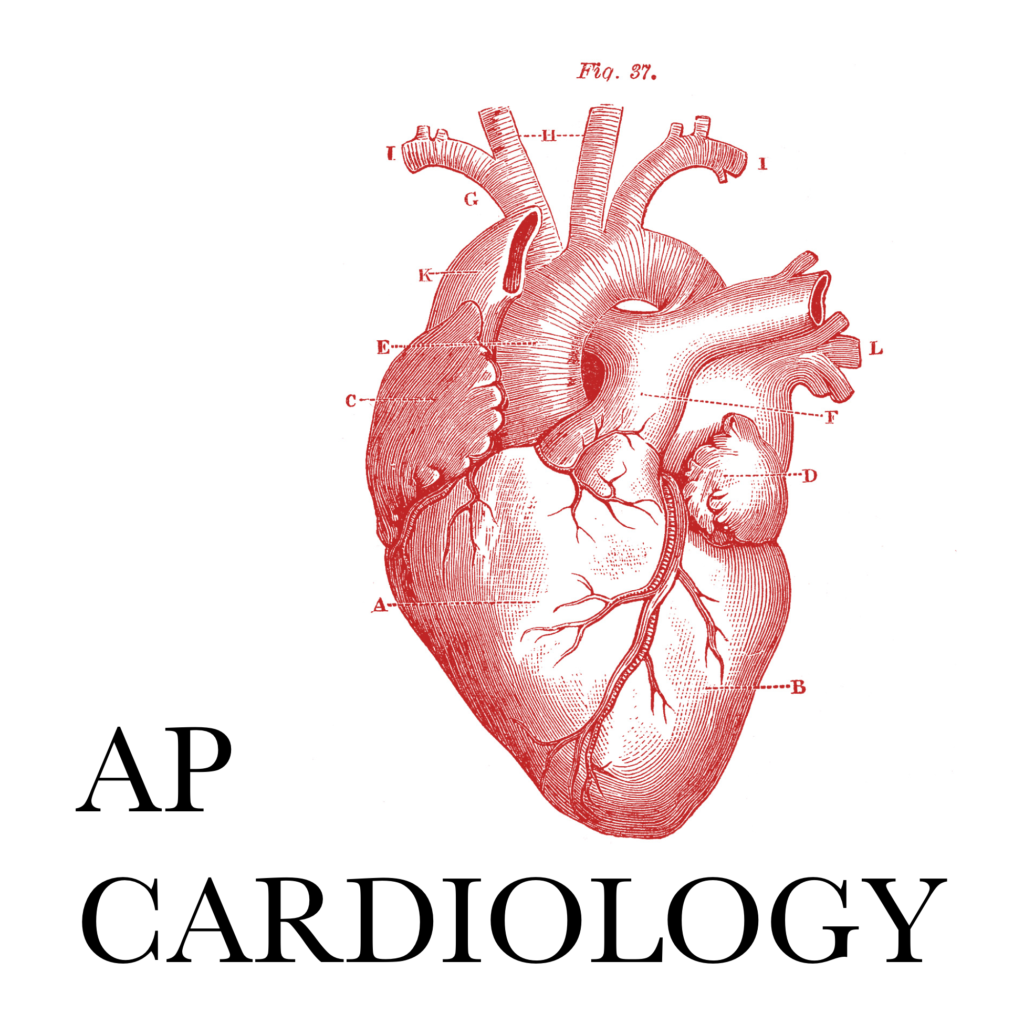Understanding the Significance of Cardiology in Modern Health Care Solutions
Cardiology plays an important duty in modern-day medical care, specifically as heart condition proceeds to be the leading source of death worldwide. Developments in diagnostics and therapy have actually transformed individual care, allowing earlier interventions and improved outcomes. The shift in the direction of preventative cardiology equips individuals to manage their wellness proactively. As modern technology proceeds to develop, the integration of cutting-edge remedies might even more redefine cardiology's effect on public health, motivating a better evaluation of arising patterns and their ramifications.
The Prevalence of Heart Condition and Its Effect On Public Wellness
Heart disease continues to be the leading cause of fatality worldwide, its influence prolongs much beyond specific clients to influence public health and wellness systems and economies. The high occurrence of heart disease puts a substantial pressure on healthcare sources, necessitating boosted funding for therapy, prevention, and rehab programs. Public health efforts must deal with threat factors such as weight problems, smoking cigarettes, and inactive way of lives, which add greatly to the increasing occurrence of heart conditions.Moreover, the financial worry related to heart illness is tremendous, incorporating not just direct medical expenses yet additionally indirect expenses associated to shed performance and early death. Communities face difficulties in handling these expenses, frequently resulting in variations in medical care accessibility and end results. As the populace ages and lifestyle-related threats continue to escalate, the urgency for effective cardiology interventions becomes paramount. Attending to heart illness is not only a matter of individual health but also a crucial public health priority.
Advancements in Heart Diagnostics and Imaging Techniques
Recent developments in cardiac diagnostics and imaging techniques have revolutionized the field of cardiology, boosting the capability to keep track of and spot heart diseases. Techniques such as heart MRI, CT angiography, and echocardiography have become significantly advanced, offering detailed photos of cardiac structures and features. These techniques allow for the very early identification of problems like coronary artery illness, heart failure, and valvular disorders.Moreover, advancements in non-invasive diagnostics, such as wearable modern technology and remote tracking tools, have actually empowered patients and health care suppliers. These tools promote real-time tracking of heart rhythms and various other vital signs, causing timely treatments. Furthermore, artificial knowledge is being integrated right into imaging analysis, enhancing precision and performance in diagnosis.
Advancements in Treatment Choices for Heart Issues
Current advancements in cardiology have actually caused considerable innovations in treatment options for heart problems. These include sophisticated medical techniques that improve step-by-step outcomes and emerging medicines that supply new opportunities for treatment. As the area develops, these advancements play a vital role in enhancing individual care and end results.
Advanced Surgical Techniques
Developments in medical methods have changed the landscape of cardiology, providing new wish for patients with heart problems. Minimally intrusive procedures, such as catheter-based interventions, have actually significantly reduced healing times and health center stays. Techniques like robotic-assisted surgical treatment improve precision, enabling cosmetic surgeons to navigate complicated anatomical structures with higher precision. Furthermore, developments in imaging innovation help with real-time visualization during procedures, improving outcomes. Transcatheter aortic shutoff replacement (TAVR) exemplifies a development in dealing with aortic stenosis, allowing valve substitute without open-heart surgical procedure. In addition, hybrid techniques that integrate catheter-based and medical techniques give tailored solutions for various heart problems. These advanced medical strategies not only improve patient safety yet likewise expand therapy alternatives, highlighting the critical role of technology in contemporary cardiology practices.
Arising Medicines and Therapies
As the landscape of cardiology proceeds to develop, arising medicines and therapies play a crucial function in improving treatment choices for heart disease. Developments such as unique anticoagulants and advanced lipid-lowering representatives have changed the administration of heart diseases, significantly lowering client morbidity and death. Furthermore, the advancement of gene therapies and regenerative medication provides encouraging avenues for dealing with problems previously deemed incurable. Medical tests are continually exposing the efficacy of these therapies, pressing the boundaries of typical treatments. The combination of electronic health innovations promotes tailored medicine, allowing for tailored treatment plans based on genetic and lifestyle elements. Jointly, these innovations emphasize the dynamic nature of cardiology, improving client end results and redefining standards of care in modern healthcare.
The Role of Preventive Cardiology in Client Care
Precautionary cardiology plays an essential function in individual treatment by concentrating on the recognition of danger aspects that add to heart problem. Through lifestyle modification strategies and early discovery strategies, medical care providers can effectively reduce the occurrence of cardio events - Cardiology. This positive technique not only boosts person end results however likewise promotes lasting wellness
Threat Variable Identification
While heart diseases continue to be a leading source of morbidity and mortality worldwide, effective threat aspect identification works as a keystone of precautionary cardiology. Identifying threat aspects such as hypertension, diabetic issues, hyperlipidemia, and family background is important for early intervention. Medical care experts use various evaluating methods to review these elements, permitting for tailored safety nets. Additionally, recognizing an individual's way of living options, such as smoking cigarettes and physical inactivity, better informs threat analyses. This complete evaluation allows medical professionals to develop tailored care plans targeted at mitigating threats. By prioritizing danger variable identification, health care systems can boost patient outcomes and minimize the total concern of heart diseases, ultimately adding to enhanced public wellness strategies and resource allowance.
Way Of Living Modification Techniques
A wide variety of researches highlights the critical role of way of life adjustment approaches in reducing cardiovascular disease risk. These techniques include nutritional modifications, boosted exercise, smoking cessation, and weight management. By adopting a heart-healthy diet rich in fruits, veggies, entire grains, and lean healthy proteins, people can decrease cholesterol levels and blood stress. Regular exercise reinforces the heart and boosts total cardio health and wellness. Additionally, giving up smoking cigarettes significantly minimizes the danger of heart condition and enhances recovery rates for those with status quo. Weight monitoring better adds to cardiovascular health by mitigating various other threat aspects such as diabetic issues and hypertension. Implementing these way of living transforms not only promotes specific wellness but additionally works as a foundation of preventive cardiology in person care.
Early Discovery Methods
Lifestyle alterations considerably contribute to lowering heart disease threats, however they are most reliable when combined with early detection techniques. view it Precautionary cardiology emphasizes the value of determining potential heart problems before they intensify into severe conditions. Methods such as high blood pressure tracking, cholesterol screening, and advanced imaging technologies like echocardiograms play critical roles in reviewing cardiovascular wellness. Biomarkers and genetic testing additionally enhance the accuracy of very early detection, permitting for tailored precautionary approaches. Regular heart risk examinations encourage healthcare carriers to intervene proactively, possibly protecting against cardiovascular disease and strokes (Dr Garcia). By integrating these very early discovery methods into regular treatment, clients can take advantage of prompt lifestyle interventions and targeted therapies, inevitably improving and boosting outcomes high quality of life
Integrating Modern Technology Into Cardiology Practices
As developments in innovation remain to improve numerous areas, the integration of innovative tools and systems into cardiology methods has actually ended up being crucial for boosting client care and outcomes. Telemedicine platforms permit cardiologists to imp source keep track of individuals from another location, enhancing accessibility to care while lowering the worry on healthcare centers. Wearable tools, such as smartwatches, enable continuous heart price surveillance, signaling both patients and physicians to prospective problems in real-time. Additionally, fabricated knowledge (AI) is being used to assess huge quantities of heart information, assisting in early medical diagnosis and tailored therapy plans. Advanced imaging techniques, including 3D echocardiography, improve visualization of heart frameworks, causing extra exact interventions. Electronic wellness documents (EHRs) improve patient details administration, guaranteeing that cardiologists have immediate accessibility to vital data. With each other, these technical developments are changing cardiology, advertising proactive administration and boosted health and wellness outcomes for people with cardiovascular problems.
The Relevance of Client Education And Learning and Engagement
Individual education and learning and interaction play a crucial role in the administration of cardio health. By furnishing patients with understanding concerning their problems, treatment choices, and way of living adjustments, doctor equip people to take an energetic role in their care. This positive technique can lead to improved adherence to recommended medicines, nutritional adjustments, and exercise programs, eventually minimizing the threat of complications.Engagement also fosters a strong patient-provider connection, urging open interaction and trust. When clients really feel notified and entailed, they are extra likely to voice concerns and ask concerns, which can cause far better clinical results. Furthermore, instructional sources, such as workshops or electronic platforms, can enhance understanding and promote self-management techniques. Generally, focusing on individual education and learning and interaction is crucial for boosting cardio wellness, boosting top quality of life, and reducing medical care costs try this site connected with heart diseases.
Future Fads in Cardiology and Their Possible Effect

Regularly Asked Concerns
What Way Of Life Changes Can Lower Heart Illness Danger?
The current inquiry addresses way of life changes that can substantially minimize heart disease risk. Cardiology Jupiter. Adopting a well balanced diet, involving in routine physical task, preserving a healthy weight, taking care of tension, and staying clear of cigarette can notably boost cardiovascular wellness
Exactly How Can I Identify Early Indicators of Heart Issues?
Recognizing very early signs of heart issues involves surveillance symptoms such as upper body pain, shortness of breath, exhaustion, and irregular heart beat. Timely recognition of these indicators can trigger necessary medical analysis and intervention for far better outcomes.
What Are the Distinctions Between Cardiologists and Heart Surgeons?
The differences between cardiologists and heart surgeons exist in their roles; cardiologists mostly detect and handle heart problems through non-invasive techniques, while heart surgeons do operations to correct architectural heart concerns. Each plays an important, unique duty.

How Frequently Should I Get My Heart Wellness Checked?
The regularity of heart health and wellness checks varies based on specific danger factors. Generally, grownups ought to undergo analyses each to two years, while those with status quo might need more frequent assessments as suggested by health care experts.
What Duty Does Genetics Play in Heart Problem Threat?
Genes substantially affects cardiovascular disease danger, with domestic patterns indicating acquired problems. Certain genetics can predispose individuals to high blood pressure, cholesterol problems, and various other cardiovascular issues, highlighting the importance of hereditary testing in assessing heart wellness. Heart disease continues to be the leading cause of death globally, its effect prolongs much beyond private people to affect public health and wellness systems and economies. Public health and wellness campaigns must attend to threat elements such as weight problems, smoking cigarettes, and sedentary way of lives, which add greatly to the increasing occurrence of heart conditions.Moreover, the economic worry associated with heart condition is immense, including not only straight clinical prices but also indirect costs associated to shed performance and early death. Preventive cardiology plays a necessary duty in patient care by focusing on the identification of risk elements that contribute to heart illness. Man-made knowledge (AI) and maker understanding are boosting diagnostics and patient monitoring, enabling early detection of heart diseases. The distinctions in between cardiologists and heart surgeons exist in their duties; cardiologists largely take care of and identify heart conditions with non-invasive methods, while cardiac surgeons perform medical treatments to remedy structural heart issues.
 Alisan Porter Then & Now!
Alisan Porter Then & Now! Joshua Jackson Then & Now!
Joshua Jackson Then & Now! Michael C. Maronna Then & Now!
Michael C. Maronna Then & Now! Matilda Ledger Then & Now!
Matilda Ledger Then & Now! Naomi Grossman Then & Now!
Naomi Grossman Then & Now!